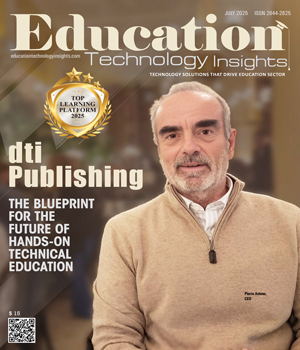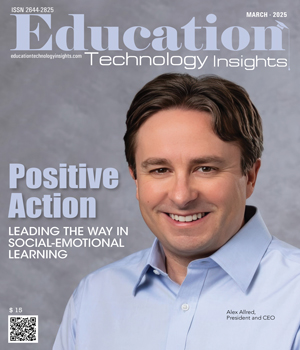THANK YOU FOR SUBSCRIBING
Be first to read the latest tech news, Industry Leader's Insights, and CIO interviews of medium and large enterprises exclusively from Education Technology Insights
The Importance of Learning Retention Programs
Mark Nilles, Director, Learning and Impact, Humentum
 Mark Nilles, Director, Learning and Impact, Humentum
Mark Nilles, Director, Learning and Impact, HumentumAccording to the 2017 State of the Industry report from the Association for Talent Development, in 2016 the average employer spent $1273 per person per year on professional development, representing more than 100 billion dollars. A 2010 McKinsey study estimated that only 25 percent of spending on training led to measured results. This means roughly the GDP of Delaware worth of training each year leads to no measurable results.
This is simply not acceptable. As learning and development professionals, we have a responsibility to support not just learning but learning transfer and improved results in the workplace.
So, it’s important to ask a few questions:
• Are our traditional training approaches supporting learning transfer and business results?
• How do we know whether our efforts are successful (and what to do to improve it)?
These are big questions, but the proposed answer is quite simple: support learning retention. Granted, this is not a magic bullet but it’s a step in the right direction. And it can be done with a tool we already use every day, making this approach accessible and effective.
No matter how effective you design and deliver the training, without deliberate and effective learning retention support, your learners will quickly slip down the forgetting curve as other priorities hinder their ability to reinforce and apply learning objectives in the workplace.
What we have found to be effective to combat forgetting and prompt prioritization is email.
I’m guessing at this point your reaction is something along the lines of: “Email?! That’s a problem—a distraction, a burden—not a solution!” Let me try to convince you otherwise.
We send short, quiz-type questions by email starting immediately after the workshop ends. Because we use an external platform (BizLibrary’s BoosterLearn platform), the learner only needs to click on the preferred answer in the email. After clicking, a webpage opens with feedback—additional context, information, resources, and ideas of how to properly apply the concept in the workplace. Thus, it’s not just a test of knowledge but an opportunity to revisit key learning points and prompt application of knowledge, skills, and tools in the workplace. The platform also collects data with every click, allowing us to learn how well learning points are understood by participants. Similar learning retention benefits, however, can be achieved without an external platform.
Why does this work?
It’s fast, easy, and valuable. The learning reinforcement is sent directly to participants’ email inbox where they’re already spending much of their time during the work day. The questions and responses are tied not only to learning but also application of learning, opportunities to drive results, and the business objectives that can be achieved through successful application of new knowledge and skills.
This approach has allowed us to deepen engagement with our learners. Emails are answered at a greater than 42 percent rate. We also have a better understanding of the results achieved based on performance data and a final, open-ended question that asks participants to share a success story of how they’ve applied new knowledge, skills, and tools from the workshop to the workplace.
Weekly Brief
ON THE DECK
Read Also
Building Future Leaders with Faith and Integrity
Virtualization as a Bridge For Multi-Campus Support
Building Practical Readiness in Cybersecurity Talent
The Liberal Arts to the Rescue
Faith Based Counseling Supporting Holistic Student Growth
Will ChatGPT End Higher Ed? Not So Fast

I agree We use cookies on this website to enhance your user experience. By clicking any link on this page you are giving your consent for us to set cookies. More info


























